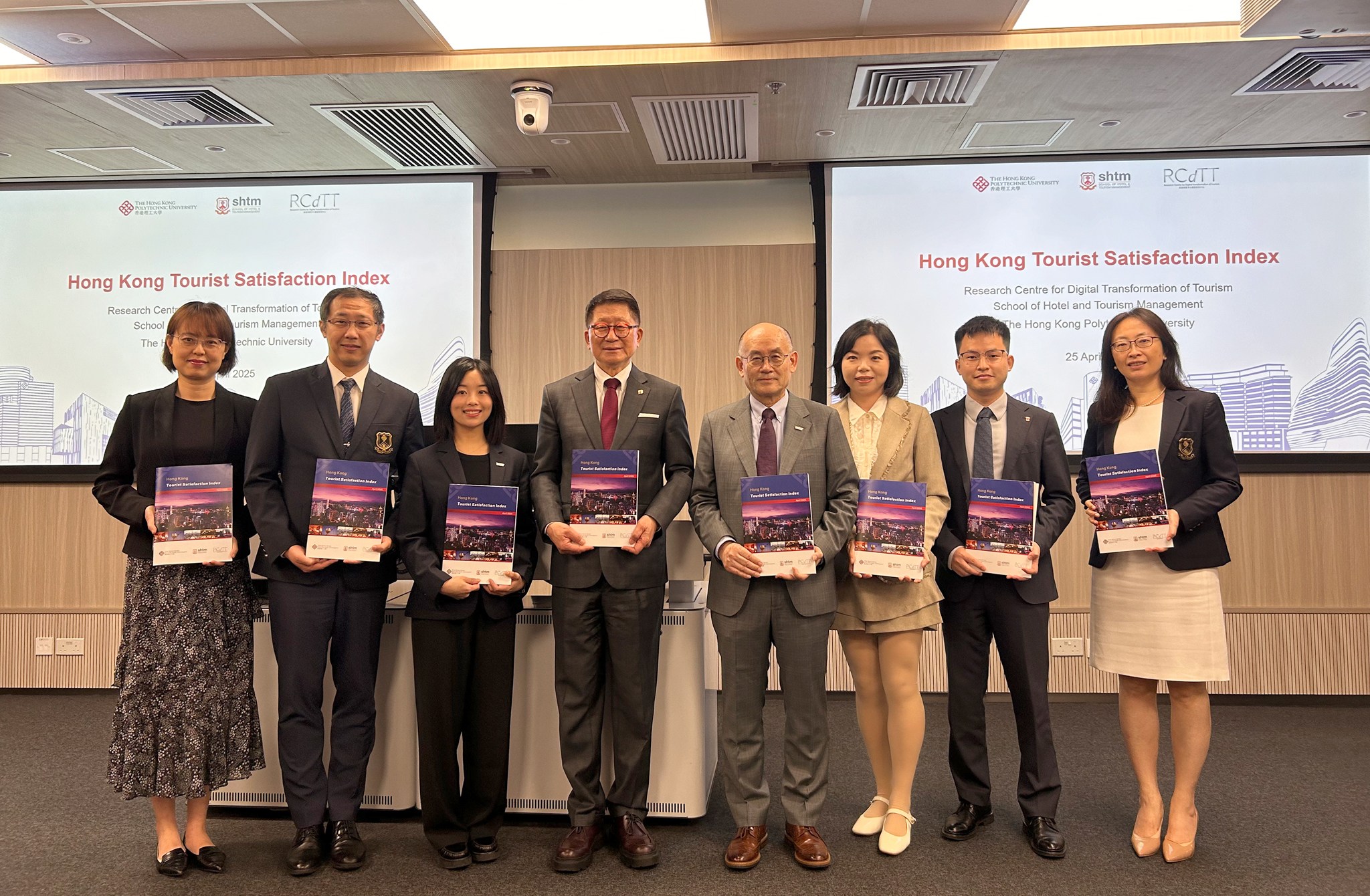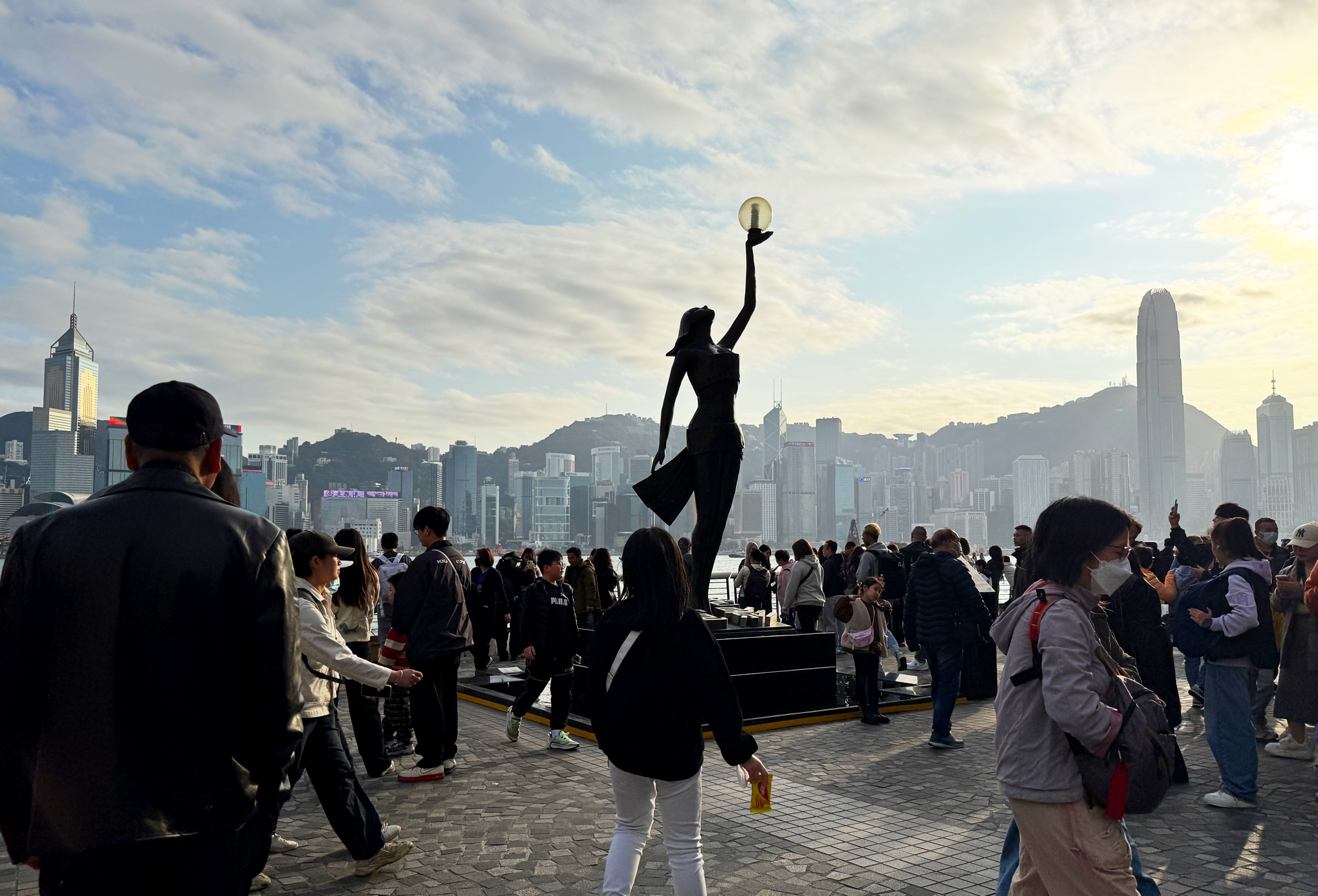
Global travelers’ satisfaction with Hong Kong has surged back to the highest level after the temporary decline during the COVID-19 pandemic, according to a large language model-based index released on Friday.
Launched by the School of Hotel and Tourism Management (SHTM) at The Hong Kong Polytechnic University, the Hong Kong Tourist Satisfaction Index shows that while there was a brief dip during the pandemic, visitor satisfaction with the city recovered to a mark of 76.76 on a 0-100 scale last year, the highest level since 2012.
Over the past decade, it has been on an upward trajectory and has consistently scored above 75.
READ MORE: Hong Kong tourism strives to grow with new strategies
Utilizing Alibaba’s open-source General Text Embedding model, the index extracts insights from more than 1.25 million reviews related to five categories — attractions, hotels, restaurants, retail shops, and transportation — gathered from the online travel agency platform TripAdvisor. These reviews are in 28 languages and cover 13,694 service providers in Hong Kong.
Song Haiyan, principal investigator and SHTM associate dean, said that to support the ongoing recovery of the tourism industry, policymakers and industry stakeholders should assess visitor satisfaction in a timely and accurate way in order to develop sustainable tourism strategies.
The research found that satisfaction with Hong Kong’s transportation services outperforms other categories, which according to Song’s team can be attributed to the city’s efficient public transport system. But satisfaction levels for retail and dining lag behind, largely due to high prices.
Regional disparities in traveler satisfaction were evident, with southern areas scoring higher than northern ones. Satisfaction peaked along both sides of Victoria Harbour, while Kowloon City received lower scores due to its low density of shopping malls and attractions.
ALSO READ: HK shines as a world-class travel destination for global tourists
Traveler types also influenced satisfaction levels. Business travelers reported higher satisfaction than solo travelers. The research team said these differences may come from their varying needs — business travelers prioritize standardized services, while solo visitors seek unique and personalized experiences.

SHTM Dean Kaye Chon said the tourism industry’s digital transformation has accelerated in recent years, particularly during the COVID-19 pandemic, which indicates the important role of digital tools and technologies in driving the development of tourism.
In the Development Blueprint for Hong Kong’s Tourism Industry 2.0 released in December, the Hong Kong Special Administrative Region government identified “intelligent and convenient travel to Hong Kong” as one of four strategies.
By leveraging modern information technologies such as electronic platforms, big data, and artificial intelligence, the SAR government aims to enhance visitor experience, making traveling in the city more convenient, efficient, and user-friendly.
READ MORE: HK charts tourism revival with innovation, GBA synergy
The Hong Kong Tourism Board said in a written reply to China Daily that it has ramped up efforts to advance the city into a smart tourism destination, in a bid to enhance travel experience and create more opportunities for the tourism sector.
The HKTB revealed it will soon kick off the preliminary development of its Smart Itinerary Planner. The first phase will include integration of travel information, development of a back-end system, and training of an AI model.
In the long term, the board plans to develop a personalized itinerary planning tool that offers tailored suggestions based on travelers’ age, interests, and purpose for visiting.
Contact the writer at irisli@chinadailyhk.com


